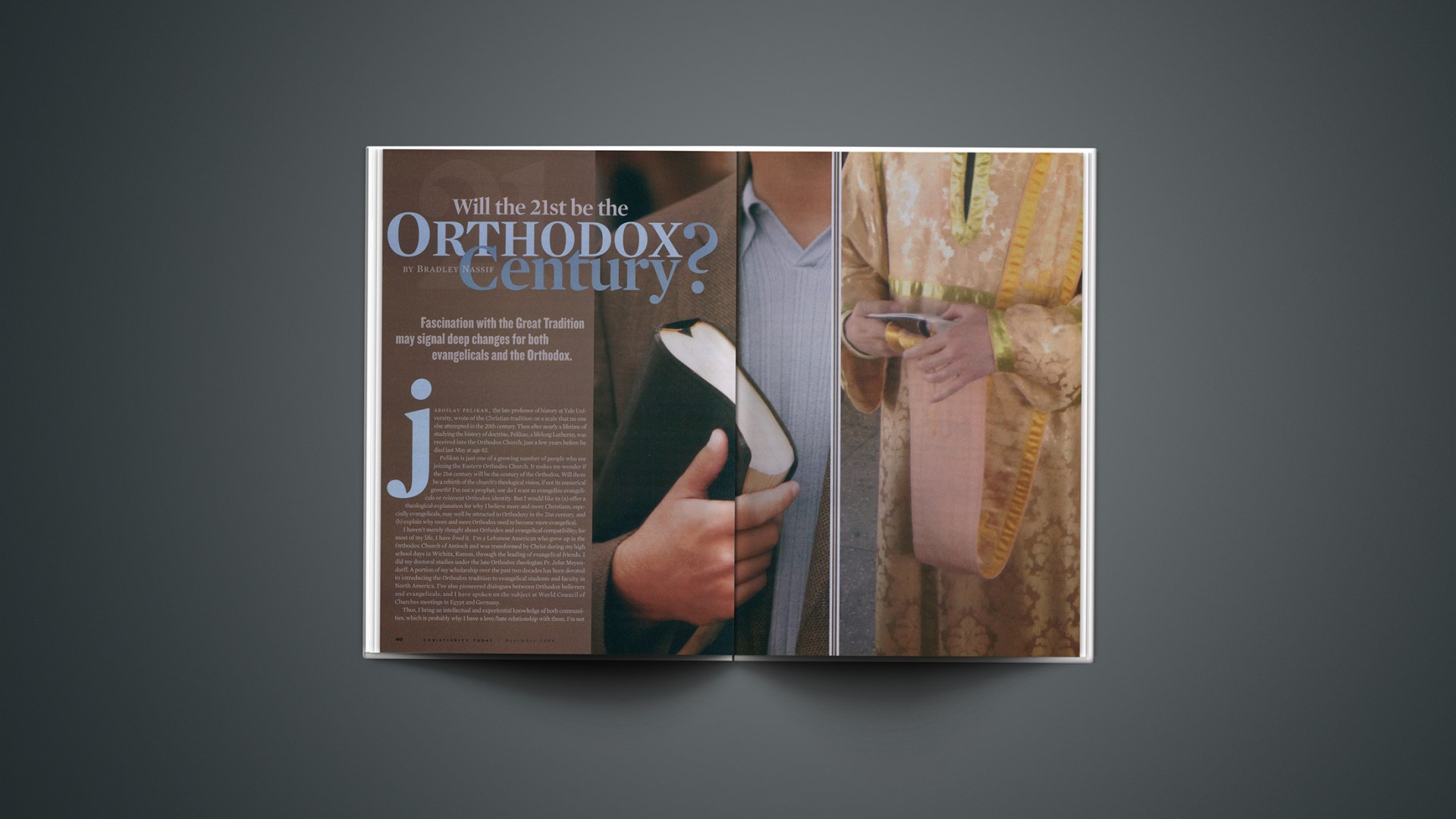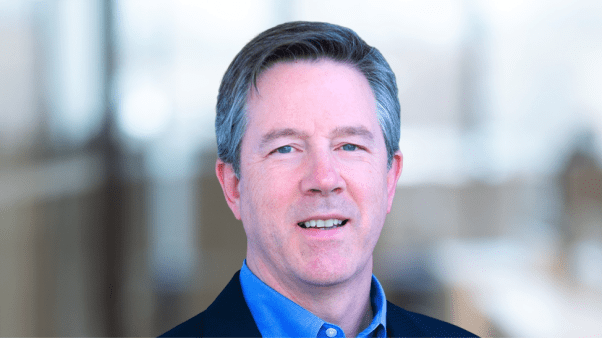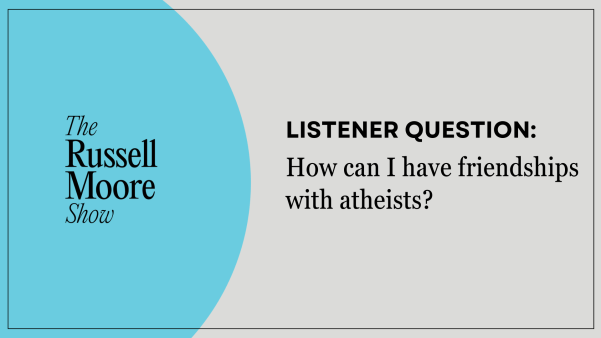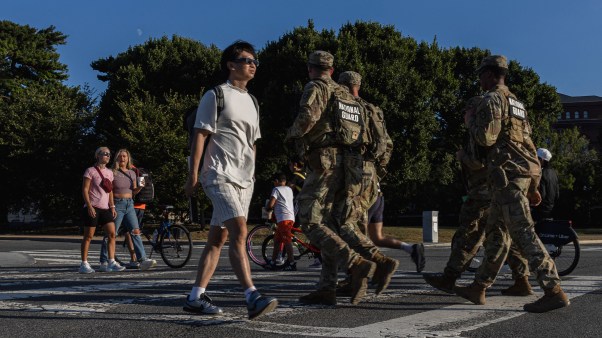Jaroslav Pelikan, the late professor of history at Yale University, wrote of the Christian tradition on a scale that no one else attempted in the 20th century. Then after nearly a lifetime of studying the history of doctrine, Pelikan, a lifelong Lutheran, was received into the Orthodox Church, just a few years before he died last May at age 82.
Pelikan is just one of a growing number of people who are joining the Eastern Orthodox Church. It makes me wonder if the 21st century will be the century of the Orthodox. Will there be a rebirth of the church’s theological vision, if not its numerical growth? I’m not a prophet, nor do I want to evangelize evangelicals or reinvent Orthodox identity. But I would like to (a) offer a theological explanation for why I believe more and more Christians, especially evangelicals, may well be attracted to Orthodoxy in the 21st century, and (b) explain why more and more Orthodox need to become more evangelical.
I haven’t merely thought about Orthodox and evangelical compatibility; for most of my life, I have lived it. I’m a Lebanese American who grew up in the Orthodox Church of Antioch and was transformed by Christ during my high school days in Wichita, Kansas, through the leading of evangelical friends. I did my doctoral studies under the late Orthodox theologian Fr. John Meyendorff. A portion of my scholarship over the past two decades has been devoted to introducing the Orthodox tradition to evangelical students and faculty in North America. I’ve also pioneered dialogues between Orthodox believers and evangelicals, and I have spoken on the subject at World Council of Churches meetings in Egypt and Germany.
Thus, I bring an intellectual and experiential knowledge of both communities, which is probably why I have a love/hate relationship with them. I’m not fully at peace with either one. Although I’m absolutely committed to the theological truth of the Orthodox church, I’m equally persuaded that we have not made that truth meaningful or accessible to our own parishioners or to those who peer inside our windows. And because of my Orthodoxy, I’m also committed to the evangelical faith.
The Rebirth of Orthodoxy
Scholars define the Great Tradition as the theological consensus of the first 500 to 1,000 years of Christian history (there is some disagreement on exact dates). This consensus encompasses the church’s universally agreed upon creeds, councils, fathers, worship, and spirituality. Some key teachings and figures include the Nicene Creed, the Chalcedonian Definition, the works of Athanasius, the Cappadocian Fathers (Basil the Great, Gregory of Nazianzus, and Gregory of Nyssa), the spiritual writings of monks like Anthony of Egypt, and certain biblical commentaries and pastoral works.
During the past two decades, mainline and evangelical scholars have rediscovered the creative relevance of the Christian East, with its insistence on the authority of the first 500 years of Christian teaching and practice. One recent sign of evangelical interest is Thomas Oden’s The Rebirth of Orthodoxy: Signs of New Life in Christianity (HarperSanFrancisco, 2002), in which Oden uses the lowercase o in order to embrace all Catholic, Protestant, and Orthodox Christians who adhere to the first 500 years of the Great Tradition. Oden sets forth six layers of evidence to show that there is, indeed, a widespread rekindling of “the orthodox spirit” at the dawn of the 21st century. These layers include:
(1) Personal transformation stories. The lives of ordinary Christians and leading academics who have been dramatically changed by the testimony of the classic tradition, including Jaroslav Pelikan and Richard Swinburne, who became Eastern Orthodox, and Robert Wilken and Richard John Neuhaus, who joined the Catholic church.
(2) Faithful scriptural interpretation. Patristic methods of exegesis are receiving more attention now than at any time during the previous century. They are fast becoming a core concern of biblical studies, as evidenced by the growing number of ancient translations and commentaries being made widely available by publishing companies such as InterVarsity, Baker, and Eerdmans.
(3) The multicultural nature of orthodoxy. No modern multiculturalism is as deep or fertile as the ecumenical multiculturalism of antiquity. The cross-cultural richness of the early church is becoming increasingly evident today.
(4) Well-established doctrinal boundaries. After decades of uncritical permissiveness in the church, we are now witnessing a renewed energy for drawing boundaries around questions of religious truth. Thousands of the faithful are together relearning how to say no to heresy on behalf of a greater yes for the truth of classical orthodoxy.
(5) Ecumenical roots reclaimed. Confessing and renewing movements in Protestantism are changing local congregations and even entire denominations.
(6) Rise of a new ecumenism. Actually, what we’re seeing is a revival of the ancient ecumenical method of theological decision-making set forth by Vincent Lerins: “We hold to that which has been believed everywhere, always, and by all.” Laypeople can easily grasp this, and they are doing so.
Organically Connected
The problem with the usual Protestant approach to the Great Tradition, however, is the gaps and inconsistencies in retrieval efforts. To many, the Great Tradition is like a library, a place you go to pick out the books you find most helpful. You can discard the ones that no longer seem relevant, while choosing the ones that have proven to be of lasting value.
So what makes me think that this renewed interest in the Great Tradition may lead to more Christians joining Eastern Orthodoxy, or at least embracing its theological vision? Simply put, I think more and more people will recognize the vital relationship between the major movements and themes of Christian antiquity and the organic life of the Eastern Orthodox Church from whence these themes came.
In two areas, especially, the Orthodox church has maintained its unbroken succession with Christian antiquity, and these areas are particularly attractive to an increasing number of Christians.
Scripture. We all agree that the Spirit’s witness through the Bible is the main criterion of the church’s faith. Tradition simply witnesses to, safeguards, and corrects itself by the integrity of the biblical message. But it was the churches of the early centuries (both East and West) that decided, piecemeal, which texts constituted the canon of Scripture, by virtue of their apostolic origin and wide acceptance within the worshiping community. Perhaps it would be more accurate to say that the Spirit embraced the believing community through the choosing of the canon, rather than that the church chose the canon. Still, the canon was composed within the context of the believing community by members of the church. Scripture was never “external” to the believing community. This does not mean that Scripture owes its authority to the church, but that the Spirit was inseparably united to the church and its sacred texts. The church functioned as the mediating authority that bore witness to the work of God within it.
So whether they are aware of it or not, every time evangelicals pick up their Bibles, they are relying on the historic church’s judgment on the colossal issue of canonicity! Without acknowledging it, evangelicals validate the authority of the Spirit-led tradition in determining canonicity. That same Spirit-led tradition has governed the Orthodox church over the centuries.
I believe an increasing number of people fascinated with the early church will see that the Spirit, the Bible, tradition, and real, historical, identifiable churches are inseparably united, then as now.
Historical continuity. I imagine that the deeper evangelicals delve into church history, the less they will confine the meaning of “orthodoxy” to the first 500 or 1,000 years. They will come to embrace the “whole story” of the faithful, not just the parts they personally like. They will discover that the fullness of Christian orthodoxy does not end with a date in the history books, but lives on in what Georges Florovsky called “the mind of the church” and what John Meyendorff described as the church’s “living tradition.” Evangelicals will see that the theological and institutional history of the Great Tradition is directly tied to the Great Church—namely, the contemporary Orthodox churches of the Middle East, Greece, Russia, Eastern Europe, and their children in the West. They will recognize that today’s “rebirth of orthodoxy” cannot do justice to classical Christian faith without keeping it connected to the church that most fully produced and inherited its achievements. Few will dispute the historical continuity between the modern Patriarchate of Antioch, for example, and the Book of Acts.
Of course, faithfulness to the truth of the Great Tradition, not organizational continuity, is what counts most. My point is simply that those who value classical faith will increasingly engage with Orthodox churches, which incarnate the Great Tradition day by day as a living tradition. I’m not arguing that the Great Tradition is the exclusive property of the Eastern Orthodox Church. It is not. Early church fathers, mothers, ascetics, councils, creeds, art, music, and spirituality are the rightful heritage of all orthodox Christians—Catholics, Protestants, and Orthodox alike. There is no room here for Orthodox triumphalism or romanticism. All orthodox believers share a common ecumenical heritage. But few historians would dispute the conclusion that in comparison to the 20,000 Protestant denominations in existence today, the Orthodox community can most justifiably claim to be the fullest heir apparent of the Great Tradition.
Evangelical Orthodoxy
At the same time, my evangelical passions prompt me to suggest that this renewed fascination with the Great Tradition may indirectly revive Orthodoxy. And if it doesn’t, it should. Little by little, our parishioners are being touched by evangelicals who are rediscovering the creative relevance of the Christian East and repackaging it far more attractively than we have been doing for ourselves.
But revival will not happen automatically. Dialogue at the local church level will help, even if evangelicals learn more from the Orthodox than the Orthodox are willing to learn from evangelicals. The time has come for us Orthodox to rediscover the evangelical character of our faith on its own terms, not defined by using some form of the model of evangelicalism. Because of our maximalist vision of theology, our evangelical identity will look and act very differently than yours. I wouldn’t exhort my Orthodox brethren to regain their evangelical focus as passionately as I do in lectures and articles if I didn’t think they would respond, and thankfully they are doing so in increasing numbers.
So I suggest that the Great Tradition of our Great Church cuts both ways, and we ourselves are judged by it! Even if the gospel is formally a part of the life of the Orthodox church, as we believe, that does not mean our people have understood and appropriated its message. “Catholicity” (i.e., “the whole and adequate” expression of the faith) must be discerned and applied if the church is to be spiritually viable in today’s world.
More and more Orthodox, as they study the Great Tradition, are admitting that our leaders and laity don’t have a mature grasp of their own faith. They recognize that the church isn’t free from ethnocentrism or religious bigotry, that it hasn’t contextualized its faith and liturgy in the modern world, and that it hasn’t figured out how to relate to unchurched people in North America (its converts consist mostly of disillusioned believers from other Christian traditions). More and more Orthodox, as they explore the early church afresh, see that there are parts of its ancient liturgies that seem to have no biblical justification and that we cannot simply regard the Reformation and the last millennium in the West as nothing more than a sideshow.
To be sure, there are countless cases of people whose spiritual lives are flourishing in vibrant Orthodox communities. Still, the most urgent need in world Orthodoxy is the need to engage in an aggressive “internal mission” of spiritual renewal and rededication of our priests and people to Jesus Christ. I know from experience that it’s possible to be “religious, but lost.” That’s why all of us Orthodox—bishops, priests, and people—need to make the gospel crystal clear and absolutely central in our lives and in our parishes. We must constantly recover the personal and relational aspects of God in every life-giving action of the church. Naturally, if this happens, it will lead to a revival within Orthodoxy, which will cause the church to blossom in unprecedented ways.
Yes, these predictions and exhortations are speculative; they may never come to fruition as I hope and imagine. And I admit that my commitment to an evangelical Orthodoxy predisposes me to hope like this. That being said, I still see signs that suggest that these two great expressions of the Christian faith, the evangelical and the Orthodox, are gradually coming together in vision, if not in worship, and that the 21st century may be known as the Orthodox century.
Bradley Nassif is associate professor of biblical and theological studies at North Park University and is currently writing the Westminster Handbook to Eastern Orthodox Theology (Westminster John Knox, 2009). He is a member of the Antiochian Orthodox Church.
Copyright © 2006 Christianity Today. Click for reprint information.
Related Elsewhere:
The Rebirth of Orthodoxy: Signs of New Life in Christianity is available from ChristianBook.com and other retailers.
Christian History & Biography‘s issues Eastern Orthodoxy, How We Got Our History, and How We Got Our Bible are available at Christianity Today Library.
Christianity Today articles on Orthodoxy and Evangelicalism and the Great Tradition include:
Why I’m Not Orthodox | An evangelical explores the ancient and alien world of the Eastern church. (January 6, 1997)
A Modest Proposal | Nine tasks egalitarians and complementarians can pursue. (November 2005)
Orthodox Unity | Autonomous Orthodoxy isn’t an oxymoron. It’s the fulfillment of a different kind of American dream. (July 1, 2004)
Don’t Read the Bible ‘Alone’ | Christopher Hall talks about how evangelicals should approach the church fathers. (November 1, 2003)
The Tradition Temptation | Why we should still give Scripture pride of place (November 1, 2003)
The Young and the Restless | The next generation rediscovers orthodoxy (Books & Culture, May 1, 2003)
Debate: Where is the Evangelicals’ Authority? (Re:generation Quarterly, April 1, 1997)
What is Eastern Orthodoxy Anyway? | The Eastern Orthodox faith is at the center of many of the millennial celebrations, but to many of our readers—specially the Western Protestants—it may be a mysterious, unknown quantity. (Christian History & Biography, April 1, 1988)









